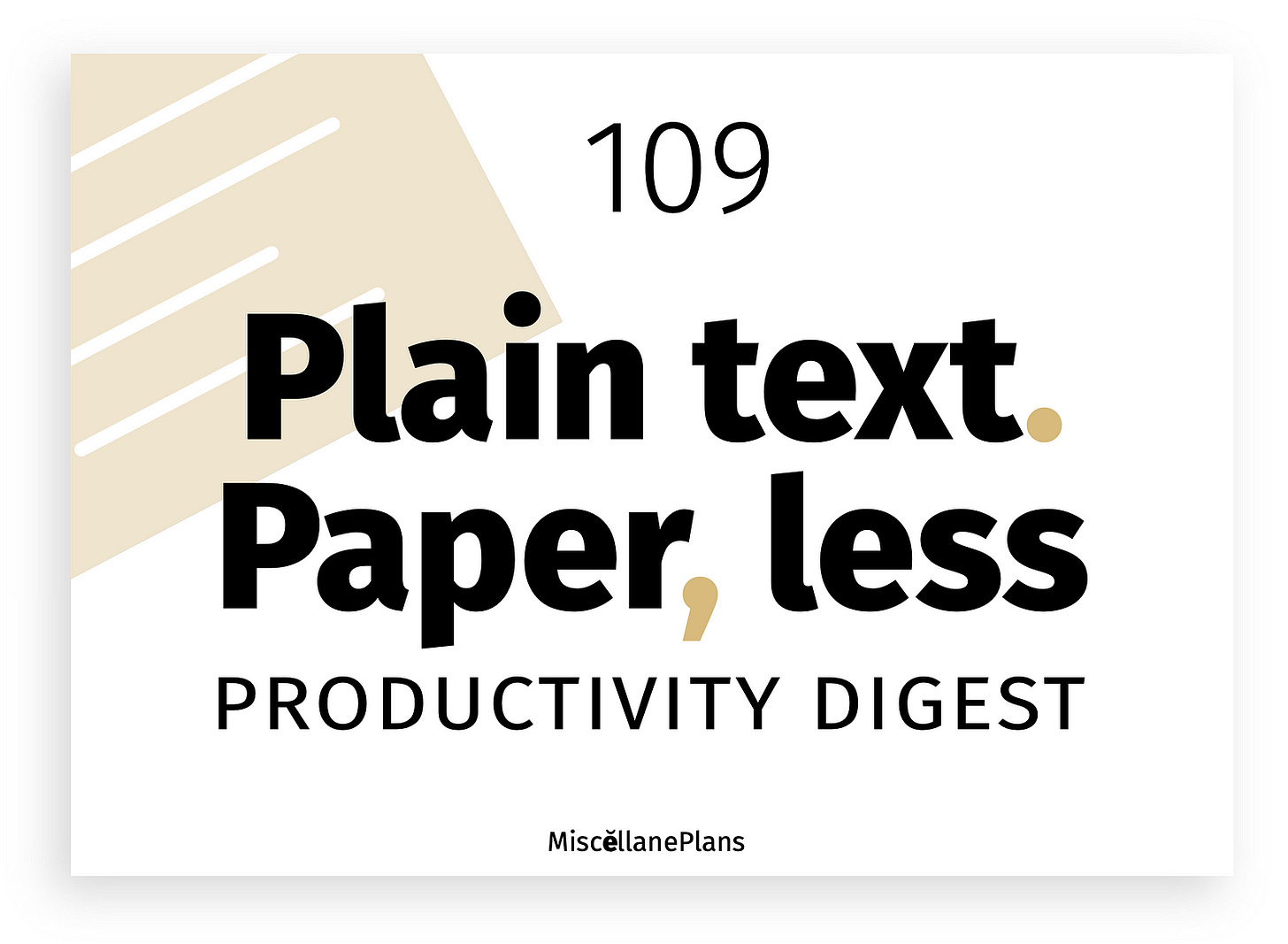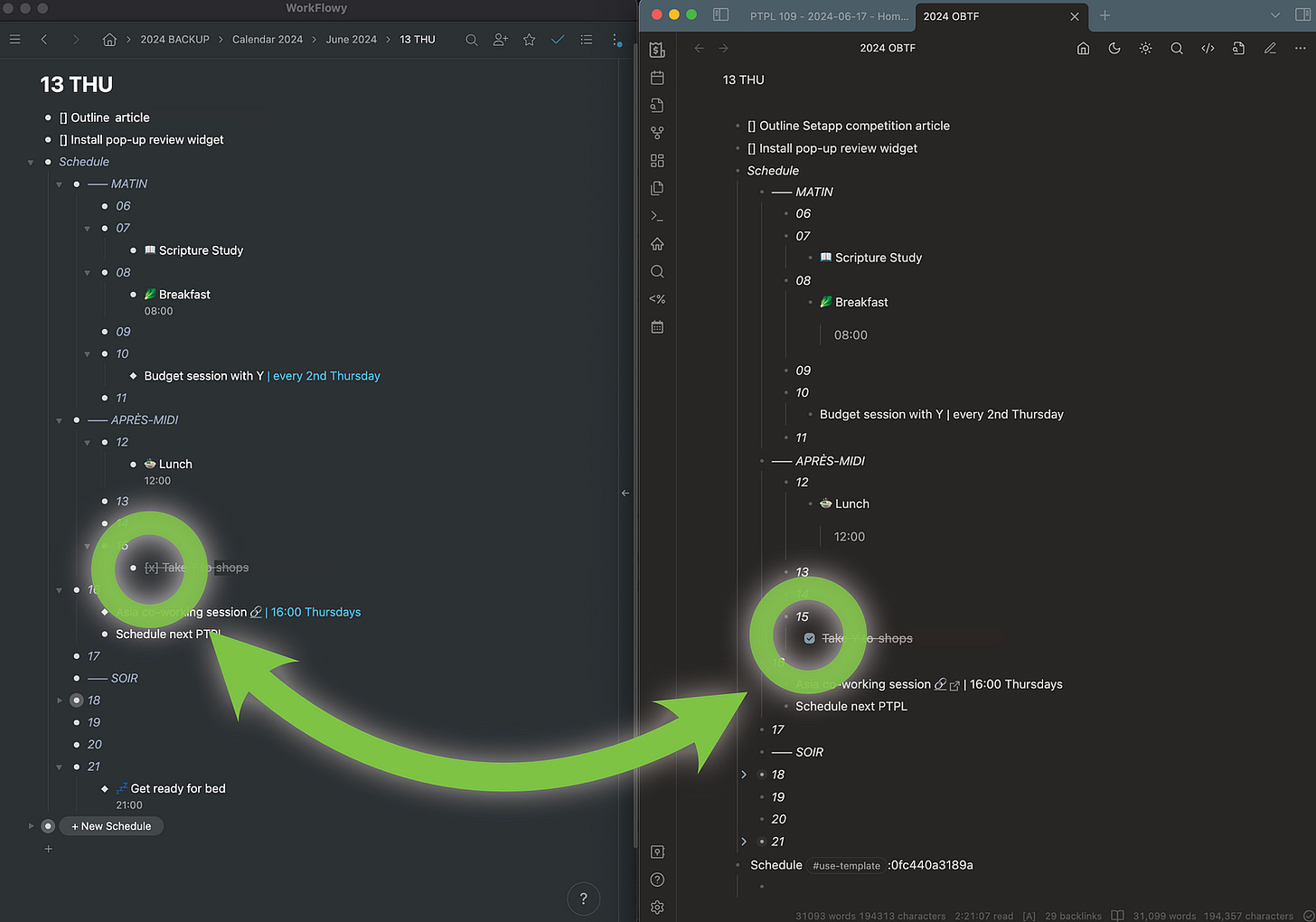PTPL 109: Households With Written SOPs Are More Resilient Than Those Without
Plus 3 tips for better Markdown exports from Workflowy to Obsidian
This week: I talk about household SOPs and why you need them, and share two specific practices that will help your Markdown exports from Workflowy to be even better. A brief look at week 3 of Learning The Command Line.
No AI input; all words 100% human made. While paid subscribers are enormously encouraging and help me to keep writing, non-subscribers are always welcome to read for free.
Expect the best, prepare for the worst
Businesses have Standard Operating Procedures (SOPs), and so should your home.
The former are usually well documented, but if someone else had to take over the running of your home, how long would it take to give them everything they’d need to do that well? Do you have an easily accessible / transmissible source of vital household information?
I’m talking about both people and things.
Insurance paperwork, what day the garbage gets picked up, who needs to be where and at what time, and even a DNA sample. You heard me right with that last one! Years ago I heard a talk where the speaker encouraged us to include something from each family member that could be used to identify them in case of an emergency.
Mine is the gauze pad from the last time I donated blood, carefully sealed in a clean ziplock bag. I may not be able to include my actual DNA in my notes, but I can absolutely write down where in my home it’s stored.
This topic came to mind again when I saw the In Case I Go Missing binder advertised online. I won’t be purchasing one, but it was a good reminder to check the information in the version that we created ourselves, and to make sure that as much of the information in it as possible is also in my notes system. This is another reason it makes sense to have a People section in your notes, in whatever format makes the most sense to you.
In case your privacy bone is tingling, just ask yourself which is the greater risk: having someone steal and misuse this kind of information, or not having immediate access to it in an emergency? I keep general household information in my Obsidian vault, and sensitive info in 1Password.
Start small, but start today! It doesn’t have to be fancy. Create a new note and start documenting the things that need doing on a regular basis. Things someone would need to know if they had to take over your role (or your entire household) if you were out of the picture for a time.
We have an old briefcase for paperwork and passports, and I’m working on making the information I keep in my private notes quickly accessible for anyone who might need it.
On a tangential but still related note, Nicole van der Hoeven shows how she takes people-notes in this video. There’s also a Contacts plugin for Obsidian, but I don’t have any experience with it. If you use it and have an opinion, let me know what you think.
3 tips for more useful Workflowy exports in Obsidian (and other Markdown apps)
Following on from last week, my Workflowy calendar experiment is still going well. I was delighted to see that some people have used my referral link to give each of us more room on the free plan — thank you very much for that!
Here are three things I learned this week that are making my (5-second!) Markdown exports even more useful in Obsidian (and any app that reads Markdown).
Completed items can be hidden in Workflowy, but you need to make them visible before exporting or they won’t appear in the backup
Add
[x]to the beginning of completed items if you want them to show as filled checkboxes in the exported Markdown (no need for the usual-preceding the[x], as the built-in bullet exports as a dash)I’ve started marking tasks in Workflowy that I may want to track the completion of with
[]at the start. You saw it right: the usual space between the square brackets is missing. That’s for efficiency of creating and completing tasks on a mobile device. You should add the space if you want those items to appear as checkboxes in your backups.
Learning the Command Line — week 3
Johnny Decimal is teaching me the command line. He welcomes input from those already familiar with it on the way he’s demystifying this baffling super power, so feel free to join in the conversation on the Fediverse.
This week Johnny recommended I review a lesson from the Excel course he and his partner, Lucy, made together. It’s a zero-to-hero course ideal for people like me, who know how to get the sum of columns but not much else. I paid for the course, but Johnny says he’ll be making that particular lesson free very soon. He’ll put a link in the associated command line lesson when it is.
I love hearing from readers, and I’m always looking for feedback. Why do you read Plain Text. Paper, Less? Is there anything you’d like to see more, or less of? Which aspects do you enjoy the most? Found a typo? Let me know in the comments, on Mastodon, or hit reply if you received this as an email.
No AI input: all words 100% human made. Download productivity goodies (including a soon-to-be-released updated Obsidian Planner demo vault) here.




